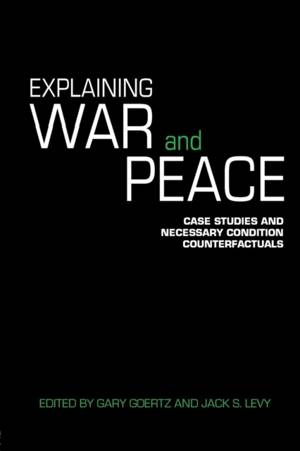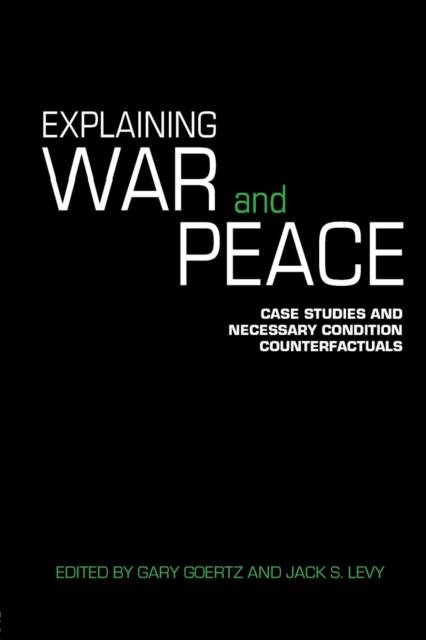
- Retrait gratuit dans votre magasin Club
- 7.000.000 titres dans notre catalogue
- Payer en toute sécurité
- Toujours un magasin près de chez vous
- Retrait gratuit dans votre magasin Club
- 7.000.0000 titres dans notre catalogue
- Payer en toute sécurité
- Toujours un magasin près de chez vous
Explaining War and Peace
Case Studies and Necessary Condition Counterfactuals
Description
This edited volume focuses on the use of 'necessary condition counterfactuals' in explaining two key events in twentieth century history, the origins of the First World War and the end of the Cold War.
Containing essays by leading figures in the field, this book analyzes the causal logics of necessary and sufficient conditions, demonstrates the variety of different ways in which necessary condition counterfactuals are used to explain the causes of individual events, and identifies errors commonly made in applying this form of causal logic to individual events. It includes discussions of causal chains, contingency, critical junctures, and 'powder keg' explanations, and the role of necessary conditions in each.
Explaining War and Peace will be of great interest to students of qualitative analysis, the First World War, the Cold War, international history and international relations theory in general.
Spécifications
Parties prenantes
- Editeur:
Contenu
- Nombre de pages :
- 362
- Langue:
- Anglais
- Collection :
Caractéristiques
- EAN:
- 9780415422338
- Date de parution :
- 14-06-07
- Format:
- Livre broché
- Format numérique:
- Trade paperback (VS)
- Dimensions :
- 160 mm x 234 mm
- Poids :
- 557 g

Les avis
Nous publions uniquement les avis qui respectent les conditions requises. Consultez nos conditions pour les avis.





